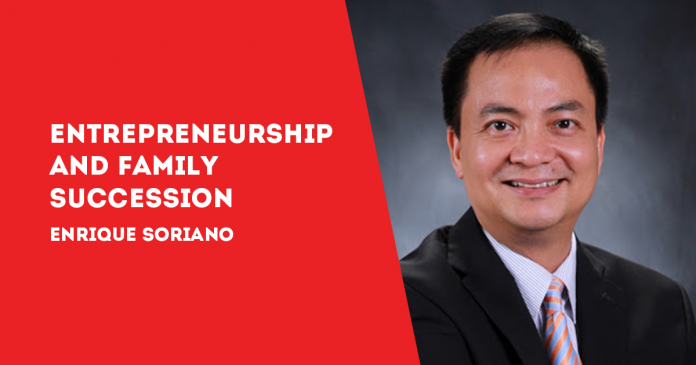
BY PROF. ENRIQUE SORIANO
“MY FATHER told me that someday I will take over his business.”
How often do we hear this statement from children of wealthy parents? When children brag about inheriting their parent’s business minus any modicum of performance, meritocracy and accountability, what kind of behavior should we expect when it’s their time to assume leadership?
Specialists often refer to this fixed state of mind as a next-generation “owner mentality.” And admittedly, it is causing a lot of sleepless nights for parents-founders and business owners.
Why? Consultant Rick Johnson stated correctly that “an attitude of entitlement that is displayed openly can create major challenges for even the most successful family business.”
He further expounds that “these children often manage with an autocratic style with little empathy for employees and leaving the impression that they can do whatever they want because they will run the company someday.”
What Johnson highlighted is a very common sight among family members working in successful family businesses in Asia. And the parents’ fear and paranoia are real as the sense of entitlement feeds into their child’s last name as a birthright, then degenerates into a mindset of an owner mentality.
According to research, children develop a sense of entitlement primarily because of their upbringing or how they are parented, especially if they are not given enough responsibility or are not taught how to deal with failures.
For the new year, it is appropriate and timely to reinforce to one and all that raising non-entitled children (and grandchildren) is important and non-negotiable. The stakes are high in sustaining a business in a complex environment (the very disruptive C-19 pandemic is one good example), and having entitled children as successors is a recipe for failure. As I write this column, China and Hongkong are going through yet another wave (5th) of lockdowns, restricting the movements of products and people. We can expect more business closures to hold sway with a gloomy GDP forecast in 2023.
But what causes children to act in a privileged manner? Certain parental actions contribute to the development of an entitled child. In our research and regular collaboration with clinical psychologists, we have identified red flags that parents/owners need to know and reflect on. One apparent mistake is the tendency to over-parent.
According to Amy McCready, founder of Positive Parenting Solutions, “When children receive everything they want, we feed into their sense of entitlement and feelings of gratitude fail by the wayside. The entitlement epidemic usually begins with over-parenting, over-indulging, over-protecting, over-pampering, over-praising and jumping through hoops to meet the kid’s endless demands. Today’s generation of parents are overly invested in their child’s happiness, comfort, and success.”
Behaviorally, humans, let alone children, can be manipulative in their actions, and the parent’s natural instinct to always say “yes” to their child’s request can create that sense of entitlement. This starts at a young age and escalates as the children get older. As I mentioned in my previous article, when parents try to make up for lost time or to assuage their feelings of guilt for not being around during parent-teacher meetings, recitals, graduations, etc., because of work, they try to buy their children’s love by way of superficial, material things.
When these actions continue into adulthood, an entitled mindset mixed with unclear entry and exit rules in the family business can cause harm to the enterprise and untold misery to the family. And when parents make the mistake of rewarding bad behavior with share ownership to avoid the dreaded tax liability, a ticking time bomb ensues./PN

